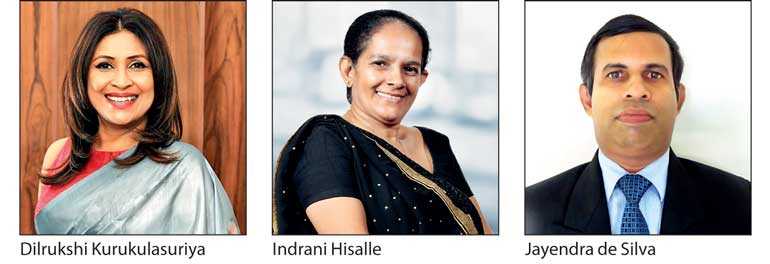Monday Feb 23, 2026
Monday Feb 23, 2026
Friday, 1 November 2019 00:00 - - {{hitsCtrl.values.hits}}

The Employers’ Federation of Ceylon (EFC) will unfold its eighth edition of the annual symposium on the theme, ‘An Agenda for Change’ on 8 November at the Cinnamon Grand Hotel, creating a platform for the employers, employees and also policy makers to deliberate on how best ‘change’ could be championed for sustainable business. Professionals representing a broad spectrum of sectors will share their expertise on three key areas of ‘Social Dialogue and Building Trust’, ‘Sustainable Enterprises’ and ‘Shifting Paradigms of the Workplace’. The dialogue will be facilitated though panel discussions and case studies.
While social dialogue is very important for workplace cooperation, there are three key elements to be focused on when communicating, said Diesel and Motor Engineering (DIMO) PLC Chief HR Officer Dilrukshi Kurukulasuriya. “The communication has to be credible, emotionally connecting and rational.” A panellist of Session 3 of the symposium themed, ‘Social Dialogue and Building Trust: Workplace Cooperation’, Kurukulasuriya further noted that helping employees to do what they do best and being sensitive to different requirements of employees also build trust.
Since employee engagement is a major factor effecting productivity, today employers make more effort to sustain employee engagement through transparent communication and enhanced employee participation in decision making, said Kurukulasuriya. “Today there is a declining trend in unionisation in the private sector of the country with more employers and employees resorting to social dialogue mechanisms through worker councils, safety committees, quality circles, information sharing forums and other measures. Hence, more cohesiveness is visible among employers and employees.”
To realise a workplace built on trust, the contribution of genuine communication and consistent behaviour of the management cannot be underpinned observed the senior professional. “In order to avoid the gap of communication it’s essential to facilitate bottom-up communication. Moreover, having open forums with the management, worker councils and information-sharing forums are very important. Organisations are after all part of the social system and cohesiveness is largely cemented by the trust built by their management over the years.”
Apart from creating an enabling environment both financially and socially, it is imperative to foster a sense of institutional pride within the employees, pointed out Sri Lanka Telecom PLC Chief Human Resources Officer Indrani Hissalle, another panellist of Session 3 of the symposium. This pride should be extended to the company brand name, its history, reputation and accomplishments, she said. “A happy workforce taking pride in its organisation naturally helps the trust index to move up.”
The culture of traditional trade-union method of facilitating employee-voice is gradually decreasing replacing it with processes such as ‘open door policies’ of grievance discussion and the intervention of grievance handling committees, said the senior HR Manager. “The young generation in particular appears not to be interested in trade union rhetoric, preferring more proactive interventions to address grievances.”
Whilst engaging with the employees in the policy-making process, it is equally important that the management shares the results of such engagements with them, noted Hissalle. Such measures could forge further trust in the management, she said, adding that it could bring sustainable solutions and thereby create win-win situations.
For any organisation to be competitive in business, championing workplace cooperation is a must, observed Hayleys PLC General Manager, Group HR Management Jayendra de Silva, who will also lend voice to Session 3 of the symposium. De Silva went on to note that social dialogue and workplace cooperation in the State sector needs to be fortified. “In the private sector, mature trade unions work closely with the management to ensure that the interests of their members are met whilst ensuring the sustainability of business operations. Similarly, I believe that the employees and trade unions in the State sector need to realise the long term implications of their actions and avoid resorting to actions which only result in short term gains but adversely affect the national economy.”
With alternative dispute resolution methods such as commercial arbitration gaining momentum in many other Asian counterparts, it is wise to exploit such tools here at home to realise better social dialogue, said De Silva further. The adversarial process which is prevalent in litigation is not only costly and lengthy but also adversely affects the long-term relationship between the employer and the employee, he remarks.
Moving towards ‘interest-based negotiations’ as opposed to ‘position-based negotiations’ also help to bridge the gap in communication and thereby minimise work-place tension and conflicts, noted the senior HR Manager.